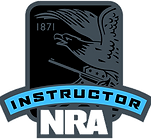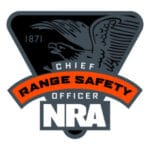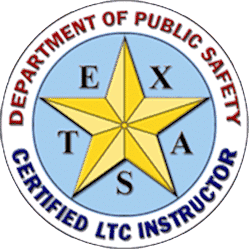frequently asked questions
With all the different companies and websites out there. It can be difficult finding all the information and getting questions answered for the license to carry class. Below you will find answers to the questions asked most often. If you have a question that is not answered below. Please contact us so we can get you an answer and add the question here to our FAQs page. We have spent a lot of time trying to think of everything.
Most Common Questions Texas LTC
Is the LTCTrainingTexas.com online License to Carry Course approved by the state of Texas?
Yes!
LTC Training Texas is an approved online course provider through the Sate of Texas Department of Public Safety Handgun Licensing Division
Who can take the online LTC class?
Anyone can take the online license to carry class, but eligibility requirements must be met to be able to get a Texas License to Carry from the state. If you can legally own a handgun and are 21 years of age, you should get your LTC. The online LTC class can be taken as early as age 19 . The certificate received is good for 2 years. This means that you can take the online class before 21, you just cannot submit your application to Texas DPS until your 21st birthday.
How difficult is the written examination and are retakes allowed?
Calling it a written examination makes it sound much more difficult than it actually is. It only consist of 25 questions that are multiple choice and true/false type questions. That’s it! Most of the questions are common sense as well.
3 attempts are allowed by DPS to complete the test.
How long is the online LTC class?
The class is mandated by Texas DPS to be a minimum of 4 hours and a maximum of 6 hours. The LTC Training Texas class is about 4 hours long with a required 25 question multiple choice quiz at the end.
The class can be taken on your computer, tablet, or smartphone. It can be started and stopped as many times as needed.
Do I have to live in Texas or be a Texas resident to get my Texas LTC?
Not at all! Texas issues non-resident LTC’s as well. The proficiency demonstration (shooting qualification) must be completed in Texas. TX DPS does not allow the proficiency demonstration to be administered outside of the state.
You can see many businesses pushing ads on google, many don’t offer Texas LTC training but promote other state chl’s that are recognized in Texas. No where as good as a Texas LTC
I am Active Duty Military, do i have to do range qualification?
The Texas LTC course is the best option for retired and active military members for several reasons. We’ll list the most unique and beneficial below, so keep reading!
- You can get the license without firearms training if you have a range card, range scores OR proof of firearms familiarization training (rifle or handgun) from the military dated within the past ten years.
- The state license fee (paid to the Department of Public Safety) is $0 for active-duty military and $25 for veterans, separate from the $40 class charge.
Frequently asked Questions Texas License to Carry
Application FAQs:
Texas License to Carry Permit Requirements
Applicant Requirements:
- You must be 21 years of age or older to apply for a Texas License to Carry (LTC).
- You must have a valid government-issued identification card, such as driver’s license from Texas or another state.
- You must meet all qualifications to purchase a handgun.
- You must pass an approved classroom or online training course and demonstrate handgun proficiency shooting with a Texas-qualified LTC instructor.
Document Requirements:
- Documentation showing successful completion of an approved gun safety class or training program*.
- Your completed application (LTC-78A) for the Texas License to Carry a handgun and any other supporting documents.
Note: In addition to the above requirements, out-of-state applicants must also submit a copy of their state driver’s license or identification card, along with the LTC-6 form. Applicants who are born out of the United States must provide, in addition to the completed application, documents to support their legal status, such as Certificate of Naturalization, Permanent Resident Card, etc.
Issuing Authority:
Texas License to Carry a Handgun is issued on a non-discretionary (“shall-issue”) basis to all eligible, qualified applicants by the Texas Department of Public Safety.
Permit Length:
The Texas License to Carry a Handgun is valid for four years.
Permit Cost:
Standard condition permits are $40. Retired judicial officers and military veterans are eligible for a discount. (There is an additional fee for fingerprinting.)
Permit Application Timeline:
The application processing time for a new License to Carry Permit is up to 60 days from the date the DPS receives your completed application. Eligibility or accuracy questions may result in additional processing time, not to exceed 180 days.
- Airport: License holders have protections related to the accidental carrying of a firearm in the secured area.
- Business: Businesses may choose to allow licensed carry on their premises.
- Government Meetings: License holders can carry in a meeting.
- University Campuses: License still required to carry on university campuses; “Campus Carry” is unchanged.
- $40.00: Valid for five years ($8.00 per year)
- License can be used as an alternative to the National Instant Criminal Background Check System (NICS) check.
- License can be used as an alternative to the National Instant Criminal Background Check System (NICS) check.
- Instructor: ID can be used for proof of certification as a Texas Handgun License instructor.
- Judge/Prosecutor: ID can be used for identification purposes.
- Veteran: ID can be used to obtain discounts at local establishments offering discounts to veterans.
- Personal Identification: The license must be accepted by most businesses as a valid form of personal identification.
- Voter ID: The license is a designated document for voter ID.
- Texas Handgun License holders can carry firearms in states where Texas has a reciprocity agreement or state law recognizes the Texas Handgun license.
- Required to apply for a Handgun License.
- Conducted by a licensed Texas Handgun Instructor.
Texas Government Code Chapter 411, Subchapter H sets out the eligibility criteria that must be met. Applicants must be at least 21 years of age (unless active duty military, a veteran of US military service, or protected person under certain protective orders) and must meet Federal qualifications to purchase a handgun. A number of factors may make individuals ineligible to obtain a license, such as: felony convictions, some misdemeanor convictions, including charges that resulted in probation or deferred adjudication; certain pending criminal charges; chemical or alcohol dependency; certain types of psychological diagnoses, and protective or restraining orders. The state eligibility requirements can be found in GC §411.172. The federal firearms disqualifiers can be found in 18 USC 44 §922.
You must also submit a completed application, pay the required fees, complete all required training and submit required supplemental forms and materials.
Applicants for an original (first-time) LTC should submit an online application, and schedule an appointment for fingerprinting after you have submitted an application. Applicants must also complete four to six hours of classroom training, pass a written examination, and pass a proficiency demonstration (shooting).
DPS will make every effort to issue your license within 60 days of receiving the completed application packet. If the application is incomplete or requires additional information to complete the background check, you will be notified in the manner you selected on your application.
The letter requesting more information or documents extends the timeline for issuing your license. DPS has an additional 180 days to complete the review process if additional information is required from the application. To ensure your license is issued promptly, it is very important for you to provide the requested information for review. If the requested information is not received timely, the application will be terminated.
Renewal applications may be submitted online at: License to Carry a Handgun.
Texas DPS will use existing fingerprints and photos on file for renewal applications. However, sometimes the quality of those prints originally submitted no longer meets the State or FBI standards. If DPS are unable to use the fingerprints on file, you will be notified to obtain a new set of prints along with instructions on where you must be fingerprinted.
Note: Individuals who are not US Citizens will need to provide their lawful presence documentation to the Department prior to renewal of their LTC.
The standard fee for an original LTC is $40. The standard fee for a renewal of a LTC is $40. However, Texas law provides for some discounts if you meet certain special conditions below. A complete list of fees along with the special conditions can be found on the fee table.
NOTE: Fees are non-refundable and non-transferrable. If an application is not approved, the fees will not be refunded
Below are the different special conditions with fees (Current as of 05-01-2022):
General
- Indigent (Individuals who live at or below 125% of the federal poverty guidelines) – $40
- Senior Citizen (Individuals aged 60 and older) – $40
- Standard (Individuals with no special conditions) – $40
Attorney/Judge
- Active Judge – $25
- Felony Prosecuting Attorney – $0
- Other Prosecuting Attorney – $40
- Retired Judge – $25
Correctional Officers
- Correctional Officer currently employed by TDCJ – $0
- County Jailer – $0
Law Enforcement
- Active
- Active Juvenile Probation Officer – $0
- Active Railroad Peace Officer –$0
- Active Special Ranger of the Texas and Southwestern Cattle Ranchers Association – $0
- Active Supervision Officer – $0
- Active Texas Peace Officer – $0
- Retired
- Former Reserve Law Enforcement Officer – $25
- Honorably Retired Texas Peace Officer – $0
- Retired Federal Officer – $0
- Retired Railroad Peace Officer – $0
- Retired Special Ranger of the Texas and Southwestern Cattle Ranchers Association – $0
- Active Military – $0
- Active Texas Military – $0
- Veteran (Honorably Discharged) – $25
- At Risk (Court order or other proof of condition required and must be over the age of 21) – $40
- Protective Order (Court order required and must be 18-20 years of age) – $40
A contribution may be made, in the dollar amount of your choice, on an original or renewal application for a Texas License to Carry (LTC). A portion of the total application fee will reflect the amount you specify. Contributing to the fund is voluntary. For more information about the program please visit: Veterans’ Assistance Fund.
When applying under a special condition, you must submit supporting documents to qualify for the discount. To determine if you meet the criteria for a discount, refer to the fee table up above. Police officers, prosecutors and judges may obtain additional information regarding the application process on DPS website at Law Enforcement/Judicial Personnel.
DPS will make every effort to issue your license within 60 days of receiving the completed application packet. If the application is incomplete or requires additional information to complete the background check, you will be notified in the manner you selected on your application.
Yes. There is a fee charged for fingerprint services. For additional information regarding the Fingerprint Application Services of Texas (FAST), please visit our website.
To schedule an appointment at a time and location convenient to you, please use one of the following methods:
- Visit Fingerprinting Services, and enter your Service Code, OR
- Call (888) 467-2080 and provide your Service Code when prompted.
Yes and No, This depends on the applying person and how well they know their past, in my opinion. DPS says the application information must be in the LTC database, prior to L-1 scheduling, to allow all the information and responses to match up properly.
If it is determined the fingerprints submitted with the application do not meet the required quality standards, new fingerprints must be provided. You will be notified in writing if your initial sets of fingerprints are rejected.
With Identigo this is rare given the fingerprints are taken digitally.
If it is determined the fingerprints submitted with the application do not meet the required quality standards, new fingerprints must be provided. You will be notified in writing if your initial sets of fingerprints are rejected.
With Identigo this is rare given the fingerprints are taken digitally.
This letter requesting more information or documents extends the timeline for completing or issuing your license. The Department has an additional 180 days to complete the review process if additional information is required from the application. To ensure your license is issued promptly, it is very important for you to provide the requested information for review.
No. Per Texas Government Code §411.173, legal residents of another state or persons who relocate to Texas with the intent to establish residency may obtain an LTC. Those individuals must submit an application, pay the required fees, successfully complete the required training in Texas and submit all supporting documents. They also must submit form LTC-6, two passport style photos and a copy of their out-of-state driver license or state issued identification card. Note, however, that all LTC applicants must be legal residents of Texas or another state.
Yes. Subject to the requirements of federal firearms law, and if not otherwise ineligible, resident aliens and certain nonimmigrant aliens who are lawfully present in the United States may obtain the license.
Initial licenses are valid for four years. Renewal licenses are valid for five years.
NOTE: License may be subject to an earlier expiration based on lawful presence status or expiration of protective order
Yes, however because you must attest to being 21, your application may not be submitted prior to your 21st birthday.
No. DPS will use existing fingerprints and photos on file for renewal applications. That being said, it does not mean Texas DPS won’t send a letter requesting new fingerprints and/or Passport Photos.
You may submit a request to change the address on your LTC online at License to Carry a Handgun. Students attending school out-of-state may leave their permanent address on their LTC. The address change will be required once the student has established a different permanent address.
NOTE: Changing the address on your Texas Driver License or ID Card will not automatically change the address on your LTC. You must submit a separate request at License to Carry a Handgun.
You may submit a request to replace a lost or stolen license online at: License to Carry a Handgun
NOTE: When DPS replaces a lost/stolen license, the license number will be changed for security reasons.
January 1, 2016, per House Bill 910 passed by the 84th Texas Legislature.
Yes. Your LTC License card will remain valid until it expires. Upon renewal, it will be printed on the newly redesigned card. All licenses printed after February 24, 2020, will be printed on the newly redesigned card.
No. Should you wish to receive the newly redesigned license, a replacement license may be obtained by submitting duplicate/change of address form. This form can be found under downloadable forms at: LTC-70. Applicable replacement fees will apply, when required. The title caption at the top of the newly redesigned card will read “License to Carry Handgun.”
See the two videos, on Firearm Safety and on Firearm Handling, at Firearm Carry Act | Department of Public Safety (texas.gov).
There are so many benefits of having a License to Carry Texas License. Below are just a few:
- Airport: License holders have protections related to the accidental carrying of a firearm in the secured area.
- Business: Businesses may choose to allow licensed carry on their premises.
- Government Meetings: License holders can carry in a meeting.
- University Campuses: License still required to carry on university campuses; “Campus Carry” is unchanged.
- $40.00: Valid for five years ($8.00 per year)
- License can be used as an alternative to the National Instant Criminal Background Check System (NICS) check.
- License can be used as an alternative to the National Instant Criminal Background Check System (NICS) check.
- Instructor: ID can be used for proof of certification as a Texas Handgun License instructor.
- Judge/Prosecutor: ID can be used for identification purposes.
- Veteran: ID can be used to obtain discounts at local establishments offering discounts to veterans.
- Personal Identification: The license must be accepted by most businesses as a valid form of personal identification.
- Voter ID: The license is a designated document for voter ID.
- Texas Handgun License holders can carry firearms in states where Texas has a reciprocity agreement or state law recognizes the Texas Handgun license.
- Required to apply for a Handgun License.
- Conducted by a licensed Texas Handgun Instructor.
This just means that your application has been received and processing has begun. This includes submission of your fingerprints to the FBI for a background check as well as conducting a fingerprint background check in Texas.
If an application is not approved, the fees will not be refunded.
Initial licenses are valid for four-year terms. Renewal licenses are valid for five years. The license will remain valid as long as you continue to meet all the eligibility criteria.
No. Updating the address on your driver license does not update or change the address on your concealed handgun license. You must update or change your address with the Concealed Handgun Licensing Bureau. You may change your address online at www.txdps.state.tx.us or you may download a Request for Duplicate Concealed Handgun License and Change of Name or Address form, under the downloadable forms link on the Concealed Handgun License (LTC) website. You may also send a letter including your full name, LTC number, old address and new address and a cashier’s check, money order or personal check for $25 to the Texas Department of Public Safety, Concealed Handgun Licensing Bureau, P.O. Box 15888, Austin, Texas, 78761-5888.
No. If you are merely attending a university in another state, you may keep your permanent address on your concealed handgun license. If after you graduate from the university, you move out of your parent’s home, then follow the procedure for requesting a duplicate license with the address change including paying the appropriate fee. You may change your address online at www.txdps.state.tx.us or you may download a Request for Duplicate Concealed Handgun License and Change of Name or Address form, under the downloadable forms link on the LTC website. You may also send a letter including your full name, LTC number, old address and new address and a cashier’s check, money order or personal check for $25 to the Texas Department of Public Safety, Concealed Handgun Licensing Bureau, P.O. Box 15888, Austin, Texas, 78761-5888.
Frequently asked Questions Texas License to Carry
Training Requirements FAQs:
An applicant may receive LTC online training (classroom only) through an Approved Online Course Provider. After, successfully passing the online classroom portion, an applicant must attend 1-2 hours of range instruction class and demonstrate handgun proficiency (shooting) with a Texas Qualified LTC Instructor.
Our Official Texas License to Carry Class gets you the required classroom training. DPS Approved, Self-Paced, and Works on any device. Enroll Here
The classroom instruction must cover the four (4) statutory required topics and may be a four-to-six-hour course:
- Laws that relate to weapons and the use of deadly force,
- Handgun use and safety, including use of restraint holsters and methods to ensure the secure carrying of openly carried handguns,
- Non-violent dispute resolution,
- Proper storage practices for handguns with an emphasis on storage practices that eliminate the possibility of accidental injury to a child.
Training material related to the safe storage of handguns may be found on Safe Gun Storage.
Yes, once you have successfully completed our classroom online LTC class you will be able to immediately print you certificate. Next is handgun proficiency training with a Qualified LTC Instructor in your local area, your instructor will provide you a Certificate of Training (LTC 100) form
(OR)
If you have successfully completed your online classroom only training with an Approved Online Course provider, your Online Course provider will provide you an Online/Handgun Proficiency Training (LTC 101) form; however, you must take the LTC 101 form to a Qualified LTC Instructor to complete your handgun proficiency training.
(OR)
You have completed the necessary classroom portion, and you meet the requirement for the range to be waived.
We make all this confusing process simple. We walk you through from the beginning to the end (Submitting Application). Let us help you obtain your Texas License to Carry (LTC).
There is no continuing education or other training required to renew a License to carry (LTC). License holders will simply apply online and submit the supporting documents for discounted fees or special conditions.
NOTE: It is the license holder’s responsibility to remain informed and knowledgeable of new laws.
Yes. Training material related to the use of restraint holsters and methods to ensure the secure carrying of openly carried handguns may be found on our website at Use of Restraint Holsters (PDF).
No Texas DPS does not offer training
Some instructors may require you to use your own gun during the proficiency (shooting) demonstration. However, others may provide the gun and/or ammunition. You will need to consult with a certified instructor to determine if you will need a handgun for the course.
Yes. If you took the class before the instructor’s certificate was revoked, then your proficiency certificate should still be valid.
Retired law enforcement officers are exempt from taking the handgun proficiency course. However, they must demonstrate weapons proficiency annually through a law enforcement agency. Active, commissioned peace officers also are exempt from taking the proficiency course. State and federal judicial officers must take an abbreviated course covering handgun proficiency and safe storage.
Some instructors may require you to use your own gun during the firing range portion of instruction and testing. However, others may provide guns for you to use. The concealed handgun license issued by DPS is not associated with a specific gun. However, the license is specific to the type of gun action, semi-automatic or non-semi-automatic.
The law does not require classes to be offered in any language other than English. However, classes may be offered in other languages as long as instructors teach key English phrases such as “I have a handgun” and “May I see your concealed handgun license?
Frequently asked Questions Texas License to Carry
Eligibility FAQs:
- Be at least 21 years old
- Not have a prior felony conviction as described in Texas Penal Code Section 46.04
- Not have a recent conviction for certain types of misdemeanors as described in Texas Penal Code Sections 02and 46.04
- Not be subject to an unexpired protective order as described in Texas Penal Code Section 46.04(c)
- Not be restricted from possessing a firearm under federal law as described in 18 United States Code Section 922(g)
- Not be intoxicated, except in certain situations as described in Texas Penal Code Section 46.02(a-6)
This bill does not extend the right to carry a firearm for anyone who was already barred from possessing a firearm under state and federal law, according to Section 2, subsection (3):
persons who are currently prohibited from possessing firearms under state and federal law will not gain the right to possess or carry a firearm under this legislation
The new law did not give anyone the right to carry if they didn’t already have that right. People with felony convictions and certain recent misdemeanor convictions remain prohibited from carrying under the new law. People subject to active protective orders also remain prohibited. See the list above for details. If you are not sure whether you can legally carry a firearm in public, you will need to consult with an attorney.
Under federal law, aliens who have been admitted to the U.S. under a non-immigrant visa, usually are not qualified to purchase a handgun and therefore, do not qualify for a license. However, as long as you were not admitted under a non-immigrant visa and are a legal resident of Texas, you may qualify.
Military personnel now stationed in Texas, just like civilians, may obtain a concealed handgun license as soon as they arrive. It is no longer required that the individual reside in Texas for six months prior to applying.
NOTE: It is the license holder’s responsibility to remain informed and knowledgeable of new laws.
Yes. DPS will accept affidavits as long as they are notarized in Texas. Applicants who qualify for non-resident licenses may have their packets notarized in their state of residence.
The Concealed Handgun Law sets out the eligibility criteria that must be met. For example, you must be qualified to purchase a handgun under all state and federal laws. A number of factors may make you ineligible to obtain a license, such as: felony convictions and some misdemeanor convictions, including charges that resulted in probation or deferred adjudication; pending criminal charges; chemical or alcohol dependency; certain types of psychological diagnoses protective or restraining orders, and defaults on state or city taxes, governmental fees, or child support.
You will also need to submit a completed application, including all the required supplemental forms and materials. These include: two recent color passport photos; electronic fingerprints submitted using L-1 Enrollment Services (L-1); a copy of your Texas driver license or identification card, and proof of class completion, as well as shooting proficiency.
After receiving completed application packets, the DPS will conduct extensive background checks of juvenile records for the previous 10 years and all adult records.
If the FBI determines that the fingerprints submitted with the application do not meet quality standards, new fingerprints will be needed. L-1 Enrollment Services will be notified, and they will contact the applicant.
No. DWI is classified as at least a Class B misdemeanor, and you are ineligible for a license for five years after a conviction for a Class A or Class B misdemeanor or disorderly conduct. This includes cases that were dismissed after you completed probation or deferred adjudication. If you have been convicted of two or more alcohol or drug-related offenses within the last 10 years, you may not be eligible.
No. Effective September 1, 2009, Burglary of a Habitation under Section 30.02, Texas Penal Code is now an offense that is permanently disqualifying under §411.1711, Texas Government Code. Even if you received deferred adjudication for Burglary of a Habitation, you are permanently ineligible to obtain a license to carry a concealed handgun in Texas.
No. Dismissals will not be grounds for denial, as long as you were not placed on probation or deferred adjudication prior to the dismissal.
Texas Government Code Chapter 411, Subchapter H states an application for a LTC may be denied if the applicant has been finally determined to be delinquent in child support obligations.
Yes. Applicants are required to report all arrests in order to ensure the background checks can be conducted timely. The application should include the year, the offense, the location and the final disposition. Copies of the dispositions will assist in the timely processing of your application. Applicants should also include information on cases that resulted in probation or deferred adjudication. Failure to provide any requested documentation could result in the termination of an application as incomplete.
Please visit Criminal History Error Resolution for the procedures to challenge the criminal history record contained in a Texas Record
Please visit Challenge of a Criminal Record for the procedures to challenge the criminal history record contained in an FBI Record
A patient’s participation in CUP does not, in itself, disqualify the individual from obtaining or maintaining a License to Carry (LTC). Notwithstanding that certain medical marijuana programs have been determined by the FBI to disqualify an individual from possessing firearms, the department does not believe this determination applies to Texas’ low-THC cannabis, Compassionate Use Program.
However, the individual’s underlying condition that is the basis for participation in CUP may under certain circumstances be disqualifying. If the medical condition potentially affects the individual’s ability to exercise sound judgment, the department may refer the matter to the Medical Advisory Board (DSHS) for their review and recommendation. Should the Board find the individual “incapable of exercising sound judgment with respect to the proper use and storage of a handgun,” the department would deny an application or revoke a current LTC.
Frequently asked Questions Texas License to Carry
Reciprocity FAQs:
Your Texas concealed handgun license doesn’t allow you to carry a handgun in another state, unless that state recognizes Texas licenses. Contact the state you will be entering to find out if it recognizes Texas concealed handgun licenses. Currently 37 states recognize the Texas License to Carry (LTC). You can check Reciprocity HERE
If you are in another state that has reciprocity with Texas, you must follow that state’s laws for carrying a concealed handgun. The same responsibility applies to anyone from that other state when traveling in Texas; they must follow the Texas laws for carrying a concealed handgun. Most states will have a website for their concealed carry licenses or permits that will update you on their laws. Alternatively, you may call the other state and ask what their laws are for carrying a concealed handgun while in that state.
You may check to see if your Concealed Handgun License is recognized, in Texas, by checking the DPS Website under LTC Agreements with Other States. All licenses that are recognized or honored by Texas are listed either as reciprocal or unilateral proclamation.
Under the statute, Texas may recognize another state’s license if their license meets minimal criteria for recognition. The attorney general will evaluate each state’s handgun licensing program to determine whether statutory reciprocity requirements are met. This recognition follows evaluation of the other states licensing statute to see if their law satisfies those minimum criteria. Upon recommendation of the attorney general, the governor will issue a proclamation or sign a reciprocity agreement recognizing a concealed handgun license issued by another state.
Your Texas concealed handgun license doesn’t allow you to carry a handgun in another state, unless that state recognizes Texas licenses. Contact the state you will be entering to find out if it recognizes Texas concealed handgun licenses. You can check Reciprocity HERE
If you are in another state that has reciprocity with Texas, you must follow that state’s laws for carrying a concealed handgun. The same responsibility applies to anyone from that other state when traveling in Texas; they must follow the Texas laws for carrying a concealed handgun. Most states will have a website for their concealed carry licenses or permits that will update you on their laws.
Alternatively, you may call the other state and ask what their laws are for carrying a concealed handgun while in that state.
Frequently asked Questions Texas License to Carry
Laws That Relate to Carrying a Handgun FAQs:
The new Texas law does not give the right to carry a handgun to anyone who was prohibited before the new law took effect. Section 2 of HB 1927 states:
persons who are currently prohibited from possessing firearms under state and federal law will not gain the right to possess or carry a firearm under this legislation
The holster does not have to be a shoulder or belt holster. Before HB 1927 took effect on September 1st, 2021, people in Texas needed to have a license to carry a handgun and they needed to keep their handgun in a shoulder or belt holster.
You can begin carrying your handgun upon receipt of the physical license.
No. There is no grace period or extension for an expired LTC, even if your renewal application has been submitted. You must wait until you receive the LTC before you are allowed to carry a handgun.
Generally, if the law authorizes a license holder to carry a handgun in the location, the handgun may be carried openly, in a holster. However, Penal Code Section 30.07 authorizes property owners to prohibit open carry by license holders by providing notice of the prohibition. Additionally, handguns may not be carried openly on the campus of an institution of higher education pursuant to Government Code, Section 411.2031, and Penal Code, Section 46.03
No. Effective September 1, 2021, the references to “belt or shoulder” are removed from the statutory requirements that openly carried handgun be carried in a holster Training material related to the use of restraint holsters and methods to ensure the secure carrying of openly carried handguns may be found on Use of Restraint Holsters (PDF).
A license holder may carry a handgun anywhere in Texas that is not expressly prohibited by law. Those prohibitions appear in several provisions of the Texas Penal Code. The handgun must be either concealed or carried in a holster. See FAQ’s Nos. 3 and 4, above.
NOTE: It is the license holder’s responsibility to remain informed and knowledgeable of new laws.
For example, §46.03, Texas Penal Code prohibits carrying of handguns and other weapons:
- On the premises of a business that derives 51% or more of its income from the sale or service of alcoholic beverages for on-premises consumption; such premises are required to post notices under Texas GC §411.204;
- On the premises where a high school, collegiate, or professional sporting or interscholastic event is taking place.
- On the premises of a correctional facility.
- On the premises of a civil commitment facility.
- On the premises of a hospital or nursing home if effective notice of prohibition is given per Penal Code Chapter 30 (unless the licensee has written authorization); such premises also are required to post notices under Texas Government Code §411.204;
- On the premises of a mental hospital, as defined by Section 571.003, Health, and Safety Code, unless the person has written authorization of the mental hospital administration.
- In an amusement park (if effective notice of prohibition is given per Penal Code Chapter 30).
- On the premises of State Hospitals (in accordance with Health and Safety Code, Chapter 552, and effective notice of prohibition is given per Penal Code Chapter 30).
- On the physical premises of a school, grounds, or buildings on which an activity sponsored by a school is being conducted, or in a school transportation vehicle.
- On the premises of a polling place on the day of an election or while early voting is in progress.
- On the premises of any government court or court offices (unless the licensee has written authorization from the court).
- On the premises of a racetrack.
- In or into a secured area of an airport; or
- Within 1,000 feet of premises designated as a place of execution on the day a sentence of death is set to be imposed.
Be advised that Sections 46.03 and 46.15 provide numerous exceptions and defenses to prosecution that may apply and should be carefully reviewed.
No. Texas law does not specifically address any prohibitions against a license holder from carrying a handgun on public transportation.
No. Texas law does not specifically address any prohibitions against a license holder from carrying a handgun in public park.
License holders should note that some public parks are federal property and are subject to federal laws. To determine if a park is a federal property, see Army Corp of Engineers.
State law does not apply to an Indian Reservation absent a Congressional authorization abrogating tribal immunity.
Yes. Private property owners may exclude license holders from carrying concealed handguns on their property by giving the license holder effective notice as provided in Section 30.06, Texas Penal Code.
Also, private property owners may exclude license holders from carrying openly on their property by giving the license holder effective notice as provided by Section 30.07, Texas Penal Code.
For the purpose of these two statutory sections, the owner of the property or someone with apparent authority to act for the owner may provide effective notice.
A sign posted under §30.06, Texas Penal Code, must:
- Include the following text in English and in Spanish:
“Pursuant to Section 30.06, Penal Code (trespass by license holder with a concealed handgun), a person licensed under Subchapter H, Chapter 411, Government Code (handgun licensing law), may not enter this property with a concealed handgun”; - Appear in contrasting colors with block letters at least one inch in height; and
- Be displayed in a conspicuous manner clearly visible to the public.
A sign posted under §30.07, Texas Penal Code, must:
- Include the following text in English and in Spanish:
“Pursuant to Section 30.07, Penal Code (trespass by license holder with an openly carried handgun), a person licensed under Subchapter H, Chapter 411, Government Code (handgun licensing law), may not enter this property with a handgun that is carried openly”; - Appear in contrasting colors with block letters at least one inch in height; and
- Be displayed in a conspicuous manner clearly visible to the public at each entrance to the property.
DPS does not furnish or sell these signs. Private property owners may print the signs or purchase the signs from a commercial printing company. Pursuant to Section 411.017, Government Code, the sign may not reflect the DPS seal or name.
No. Sections 30.06 and 30.07, Texas Penal Code, give private property owners some options in how to convey notice to LTC holders. But if the private property owner chooses to post a notice, it must comply with the 1-inch block-letter, contrasting color, and other requirements specified in Sections 30.06 and 30.07.
It is a Class C misdemeanor punishable by a fine not to exceed $200 for a license holder to carry a concealed handgun onto private property after receiving effective notice under §30.06, Texas Penal Code, or to openly carry a handgun onto private property after receiving effective notice under §30.07, Texas Penal Code. The offense may be enhanced to a Class A misdemeanor if it is shown at trial that, after entering the property, the license holder was personally given the notice by oral communication described by Subsection (b) (of §30.06 or §30.07) and subsequently failed to depart.
No. State agencies and political subdivisions cannot use §30.06, or §30.07, Texas Penal Code, to prohibit handguns from their government property. If a state agency or political subdivision unlawfully posts a sign under §30.06 or §30.07, the state agency or political subdivision can be fined $1,000-$1,500 for the first offense and $10,000-$10,500 for each subsequent offense.
Note, however, that with the exception of governmental meetings subject to the Open Meetings Act, license holders are prohibited from carrying their handguns on the premises listed in §46.03 of the Texas Penal Code, and those places include some properties owned by state agencies and political subdivisions (e.g., courts).
While the Penal Code’s prohibition against carrying a handgun while intoxicated does not apply to license holders, the department would nevertheless caution against carrying when one is impaired, whether through the use of alcohol or otherwise. The impairment of one’s judgment regarding the handling or use of a handgun can have devasting consequences for the license holder and those around him or her, with the potential for significant civil or criminal liability.
A person may be subject to criminal sanctions and/or civil liability depending on the circumstances. License holders should be aware of the potential criminal sanction under Texas Penal Code §42.01 related to disorderly conduct. Licensees should also know that municipalities may adopt an ordinance related to discharge of firearms within city limits per Local Government Code Chapter 229
Texas law does not address the number of handguns a license holder may carry.
GC411.2031 permits a License to Carry holder the ability to carry a concealed handgun on campuses of private, public, and independent institutions of higher education as long as the institution has not given effective notice that the carrying of a concealed handgun on certain portions of campus is strictly prohibited. Effective notice must conform to the standards under Section 30.06, Penal Code. The open carry of a handgun on a college campus is still prohibited.
The Texas Business and Commerce Code requires that most businesses accept a License to Carry a Handgun (LTC) as a valid form of personal identification for access to goods, services, or facilities. However, vehicle rental services still require a driver license.
Information on individuals who are licensed to carry a concealed handgun is confidential and not subject to requests under the Public Information Act. However, DPS may release information about a concealed handgun licensee to criminal justice agencies for law enforcement purposes.
Yes, license holders are authorized to carry in their vehicles, but the handgun must be either concealed or in a holster.
Frequently asked Questions Texas License to Carry
Texas DPS Administrative Enforcement Actions FAQs:
Yes. If the license holder has not surrendered the license or the license was not seized as evidence, the license holder shall surrender the license to the department not later than the 10th day after the date the license holder receives the notice of suspension or revocation from the department, unless the license holder requests a hearing from the department. See GC §411.186 and §411.187.
Texas Government Code §411.187 requires DPS to suspend a license, if the license holder is charged with a Class A, or Class B misdemeanor offense
It depends on the type of charge and whether you are subsequently convicted or placed on probation. If you are acquitted of the pending charge, your license will be reinstated if it did not expire during the time of the suspension.
The license is now subject to revocation. DPS, upon notification of the conviction, will send a new letter informing you of the revocation based upon a disqualifying conviction.
Texas Government Code §411.171(a)(8) states a person is not eligible for a LTC, for a Class A or Class B conviction within five (5) years before the date of application. Once you meet the eligibility requirements, you will not be eligible to reapply for two (2) years following the end of the cause for revocation. See Texas Government Code §411.186.
Frequently asked Questions Texas License to Carry
Disqualifiers FAQs:
Past psychiatric treatment does not necessarily make you ineligible. Eligibility for a concealed handgun license depends on whether or not your hospitalization in the psychiatric facility was a result of a court order, a board commitment, or a determination that you lacked the mental capacity to contract or manage your own affairs. If you voluntarily entered into the facility for treatment, you may be eligible. Court ordered commitment for psychiatric treatment or court order outpatient treatment will make you ineligible since you have been legally adjudicated as a mental defective under the Gun Control Act 18 USC §922(g)(4). Eligibility will also depend on whether or not you were granted a relief of disabilities under the NICS Improvement Amendment Act. If you have spent time in a psychiatric care facility, you should attach a letter to your application from a licensed psychiatrist stating that your “condition is in remission and is not reasonably likely to develop at a future time,” as stated in the concealed handgun law. Please note, that you are required to list all psychiatric treatment or diagnoses on your application.
Any application that indicates past mental health issues will be referred to the Medical Advisory Board (MAB) to make a determination on the applicant’s ability to exercise sound judgment with respect to the proper use and storage of a handgun. MAB will contact you so that you to request any necessary information. MAB will then make a determination based upon all documents submitted plus your own doctor’s statement. The Department will generally follow the majority opinion of MAB. If the Department denies an application or revokes a license based on a MAB determination, then the applicant or licensee can request a hearing on the Department’s actions. That hearing will be held at the justice of the peace court in the precinct in which the applicant or licensee resides.
You may send a signed, notarized letter to DPS, and officers will investigate the allegation.
If you feel it is an immediate danger please don’t hesitate and contact local Law Enforcement!
No. DWI is classified as at least a Class B misdemeanor, and you are ineligible for a license for five years after a conviction for a Class A or Class B misdemeanor or disorderly conduct. This includes cases that were dismissed after you completed probation or deferred adjudication. If you have been convicted of two or more alcohol or drug-related offenses within the last 10 years, you may not be eligible.
Yes. The concealed handgun law states that deferred adjudication will be treated as a conviction.
Possibly. The Attorney General’s Office notifies the Department of anyone who is delinquent in their child support obligation. It will depend on whether the person has entered a payment plan for repayment of the delinquent child support. If the person is making the payments in accordance with the terms of that repayment plan and is in compliance with the current child support obligation, the person will be eligible for a license.
No, effective September 1, 2009, delinquency on student loans has been removed as a disqualification under the eligibility criteria.
No. Dismissals will not be grounds for denial, as long as you were not placed on probation or deferred adjudication prior to the dismissal.
Yes. Texas law requires you to meet all state and federal laws regarding handgun possession.
Yes. If your criminal history background check indicates an arrest but does not reveal a final disposition, DPS might have to check local records which is time consuming and could significantly delay your application. Always indicate the year, the offense, the location, the outcome and preferably the level of the offense, such as felony, Class B misdemeanor, etc. Attaching copies of the dispositions will help DPS process your application more quickly. Include information on cases that resulted in probation or deferred adjudication.
Yes. You may be eligible for a concealed handgun license as long as you have a discharge from probation that accurately reflects that the judge entered an order setting aside your conviction, dismissed the indictment against you and allowed you to withdraw your plea of guilty, and then released you from all penalties and disabilities. The definition of “convicted” was changed effective September 1, 2009, to allow those individuals who have had all their rights restored to obtain a concealed handgun license.
We must caution you that you must have had all core rights restored. If there is any language limiting your ability to own or purchase a firearm, then you may not be eligible.
No. Effective September 1, 2009, Burglary of a Habitation under Section 30.02, Texas Penal Code is now an offense that is permanently disqualifying under §411.1711, Texas Government Code. Even if you received deferred adjudication for Burglary of a Habitation, you are permanently ineligible to obtain a license to carry a concealed handgun in Texas.
Yes. If the FBI/NICS has finally determined that you are not eligible to purchase a firearm, then you will be disqualified from obtaining a concealed handgun license since you must be qualified under all federal and state laws to purchase or possess a firearm
FAQs Disclaimer:
The FAQs are some of the questions that we frequently get asked. The questions and answers are not intended to be exhaustive and do not constitute legal advice for your particular question, issue or concern. The information, however, is intended to be helpful and to get you thinking in a more sophisticated manner about your legal issues and possibly will assist you to ask the right questions or determine whether you have a legal need. In short if you need legal advise please contact a lawyer.











